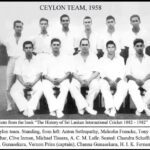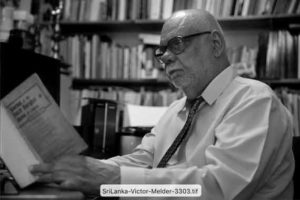An Inspirational Message for the Month of August 2024 – By Charles Schokman

Eric Liddell: A Century of Inspiration from an Olympic and Kingdom Champion
A hundred years ago, on July 11, 1924, Eric Liddell achieved athletic immortality by winning the gold medal in the 400 meters at the Paris Olympics. His victory was not just a triumph of physical endurance and speed but a testament to his unwavering faith and willing spirit. Liddell’s life, ministry, and legacy continue to inspire generations, embodying the ideals of dedication, humility, and service.
Early Life and Athletic Career
Eric Henry Liddell was born on January 16, 1902, in Tientsin (now Tianjin), China, to Scottish missionary parents. From an early age, Liddell exhibited extraordinary athletic talent. Educated in Scotland, he attended Eltham College in London and later the University of Edinburgh, where his talent on the track and rugby field became evident. Liddell quickly became known as “The Flying Scotsman,” earning a reputation for his remarkable speed and unique running style, characterized by a distinctive head-back, mouth-open posture.
Liddell’s athletic career peaked during the 1924 Paris Olympics. Initially favoured for the 100 meters, he famously refused to compete in the heats held on a Sunday, adhering to his strict observance of the Sabbath. Instead, he focused on the 400 meters, a distance in which
he was not expected to excel. Against the odds, Liddell not only won the race but set a world record time of 47.6 seconds. His victory was seen as a triumph of faith over expectation and a symbol of integrity.
Ministry and Missionary Work
After his Olympic success, Liddell returned to China in 1925 to follow in his parents’ footsteps as a missionary. He served in various capacities, including as a teacher and a minister, spreading the Christian faith and providing education in rural communities. His commitment to missionary work was unwavering, often at great risk.
Liddell married Florence Mackenzie in 1934, and they had three daughters. As tensions in China escalated with the outbreak of the Second Sino-Japanese War, Liddell sent his family to Canada for their safety while he remained in China to continue his work. His dedication to the mission was marked by his humility, compassion, and the ability to inspire others even in the direst circumstances.
In 1943, during the Japanese occupation of China, Liddell was interned at the Weihsien Internment Camp. Despite the harsh conditions, he remained a beacon of hope and resilience, organizing sports and educational activities for the internees. He was affectionately known as “Uncle Eric” for his kindness and selflessness. Liddell’s health deteriorated in the camp, and he was diagnosed with an inoperable brain tumour. He died on February 21, 1945, at the age of 43, leaving behind a legacy of faith and endurance.
Legacy
A century after his victory, the Olympics are in Paris again and Eric Liddell’s legacy endures through his remarkable life story. Immortalized in the 1981 film “Chariots of Fire.” The film not only brought Liddell’s story to a global audience but also highlighted the core values that defined his life: faith, perseverance, and integrity.
Liddell’s impact extends beyond his athletic achievements. His life is a powerful reminder of the importance of staying in faith, even in the face of adversity. His refusal to compromise for Olympic glory and his subsequent dedication to missionary work in China reflect a profound commitment to serving others and living a life of purpose.
Liddell’s legacy is also evident in the institutions and initiatives established in his honour. The Eric Liddell Centre in Edinburgh, founded in 1980, is a community hub that supports the elderly and people with dementia, continuing Liddell’s spirit of service. His story continues to be taught in schools and celebrated in sports, inspiring athletes and non-athletes alike to pursue their goals with integrity and dedication.
Written By Paul Romano





















